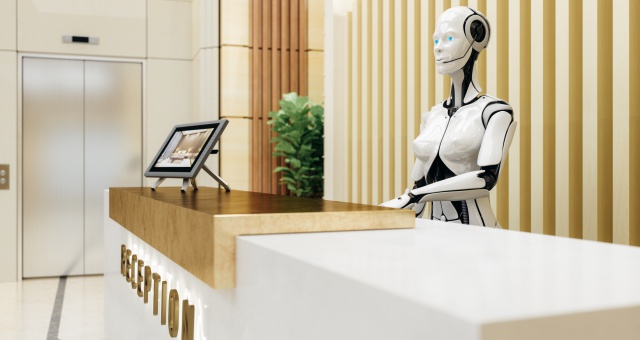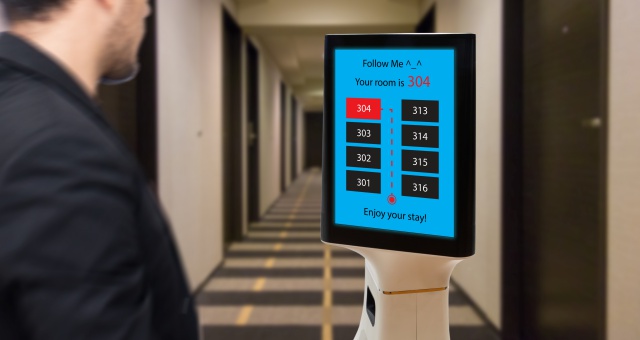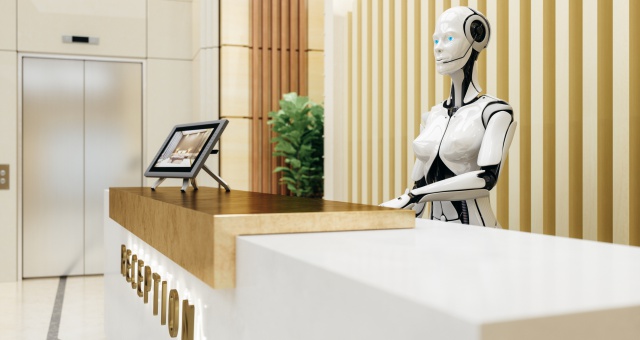
The hospitality industry of the future could involve robots at the concierge desk, hyper-personalisation of hospitality and the end of traditional hotel room types, according to new research commissioned by Amadeus and InterContinental Hotels Group (IHG).
The report ‘Drivers of Change in Hospitality’ draws on contributions from 7,500 consumers and insights of industry experts to identify three major trends which may dictate the needs of future consumers. The research incorporated forecasting data which shows the number of international travellers is expected to double current levels by 2036.
One such trend sees hotels do away with traditional room types and in their place bring in an era of personalisation where guests can swap an in-room desk for a yoga mat or for guests to ask for a specific room they may have stayed in previously. This level of personalisation will make room types attribute based instead, where guests can literally pick and choose what they want in their room, starting with a base price and adding on bespoke contents to suit individual requirements.
Presently, the majority of guests still prefer human interaction over technology as it relates to customer service. The research suggested hotel concierges could converse with guests from all corners of the world in their native tongues through the use of real-time translation earphones and smart glasses.

Cornell University Director of Centre for Hospitality Research, Chris Anderson, said the hospitality industry was on the cusp of a new chapter.
“Guests are seeking richer individual relationships and seamless experiences with their hospitality providers and are willing to share more data and insights than ever before.”
“Modern expectations around travel continue to become more complex and sophisticated, with shifting consumer dynamics and increasingly intelligent technology pushing the boundaries of what is possible,” said IHG Chief Commercial and Technology Officer, George Turner.
“IHG has proven itself to be pioneering and ambitious over many decades and this paper offers perspective on how the hotel experience could further evolve in the not too distant future.”

